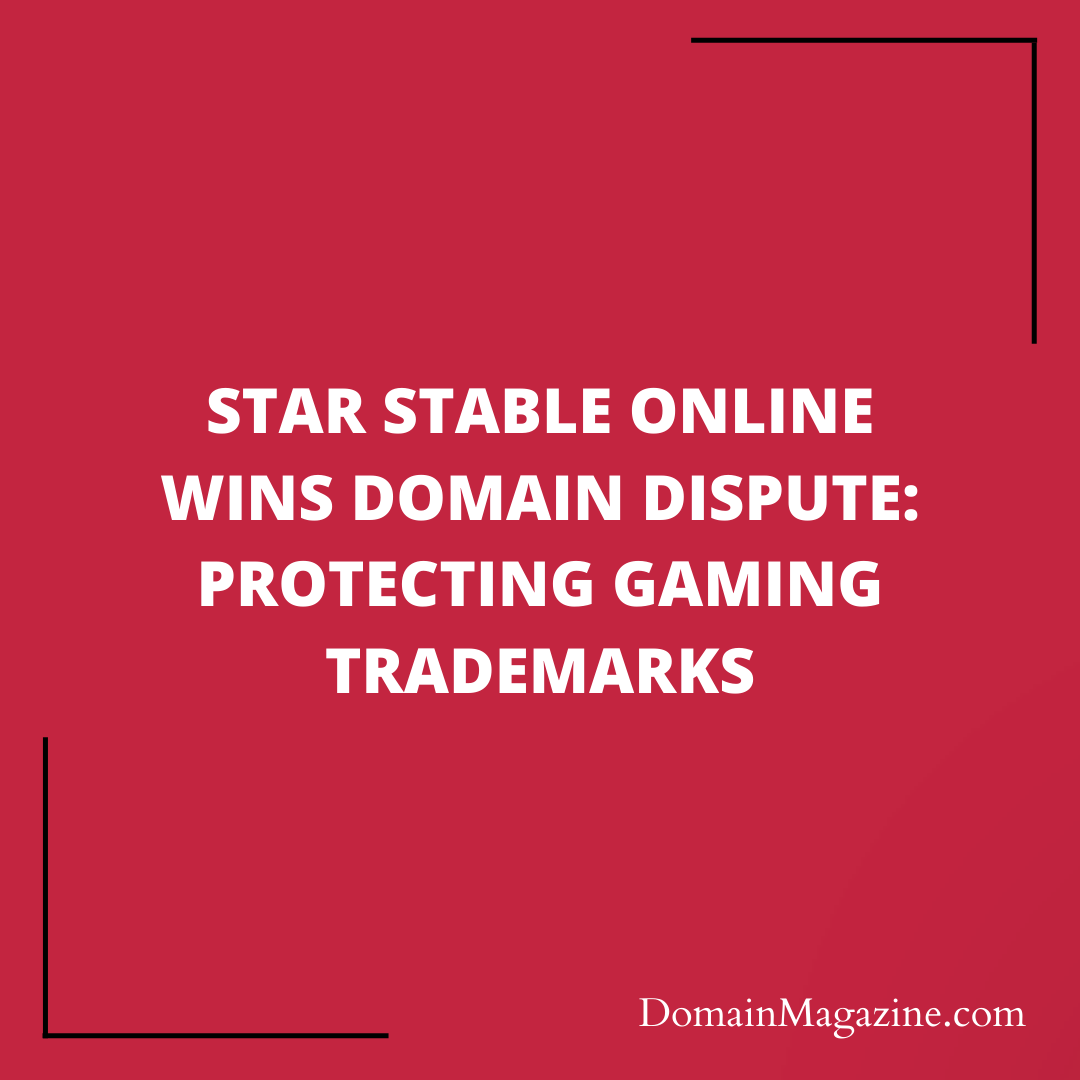In a recent online domain dispute, the popular developer of the adventure game “Star Stable Online” emerged victorious, highlighting the importance of protecting trademarks in the digital age. With millions of registered users and a substantial online following, the Complainant faced the challenge of reclaiming domain names that could potentially confuse and deceive its loyal fan base. Let’s delve into the background, key facts, and the panel’s decision that led to this significant outcome.

Background:
Founded in 2010, the Complainant is the creative force behind the beloved online adventure game, “Star Stable Online,” known for its horse-centric adventures and mysteries. By 2017, the game had already attracted a whopping 12 million registered users, cementing its place in the hearts of gamers worldwide. To protect its intellectual property, the Complainant owns various domain names, including <starstable.com>, dating back to 2007.
The dispute arose when four domain names, namely <starstablefree.com>, <starstableplay.com>, <starstableonlinedl.com>, and <star-stable-online.com>, were registered without authorization. These domains appeared to be fan sites, displaying the Complainant’s logo and offering the game for free download. This raised concerns of trademark infringement and deceptive use.
Key Facts:
- The Complainant, developer of “Star Stable Online,” boasts a massive user base and trademarked the name.
- Four disputed domain names were registered in 2021 and 2022, potentially confusing users.
- Fan sites associated with the domains offered the game for free download, raising concerns of trademark infringement.
- The Complainant issued a cease-and-desist letter in October 2021, which went unanswered.
Panel’s Decision:
The case was presided over by Mr. Andrew Lothian. The panel’s decision favored the Complainant for several reasons:
- The Complainant established a strong case that the Respondent had no legitimate rights to the disputed domain names.
- The panel found that the disputed domain names were registered and used in bad faith. The use of the Complainant’s trademark and logo on the associated websites indicated an intent to deceive users.
- Despite the Respondent’s claim that these were fan sites, the panel remained unconvinced, especially as two of the domains had been used for commercial purposes.
- Lack of a prominent disclaimer on the websites further reinforced the impression that they were official, causing potential confusion among users.
Conclusion:
This domain dispute underscores the importance of protecting trademarks in the online gaming industry. The Complainant’s victory sets a precedent for safeguarding intellectual property in the digital realm. It serves as a reminder to all parties involved in domain registration to act responsibly and avoid infringing on established trademarks. As online gaming continues to thrive, protecting the integrity of brands and trademarks remains paramount.
Read the full case here: https://udrp.adr.eu/decisions/detail?id=64f9ab9fb240e1bdb60bcdd8


Join the Discussion